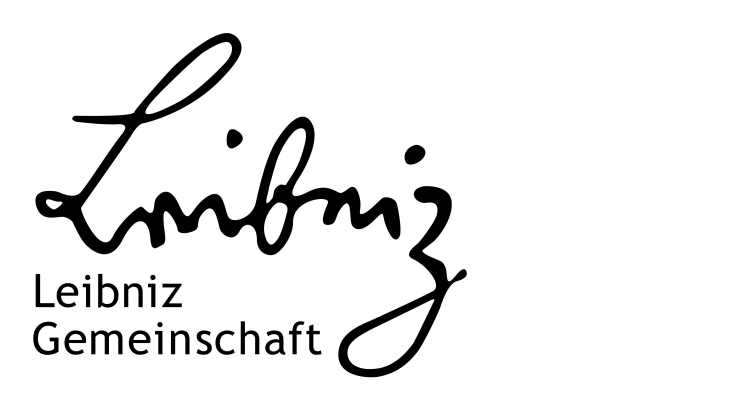- Startseite
- Forschung & Transfer
- Forschungsprojekte
- Sources and Consequences of Legitimation Strategies of Regional Organizations (LegRO)
Sources and Consequences of Legitimation Strategies of Regional Organizations (LegRO)
In an era of increasing political challenges to global and regional organizations, it is crucial to understand how they claim legitimacy, and how successful they are in this respect. Yet, we know surprisingly little about the sources and consequences of legitimation in most regional organizations around the world. In this project we thus map the legitimation strategies of a sample of 30 organizations and conduct qualitative comparative case studies on major organizations in the Global South.
Leibniz Association, 2018-2023
Team
Forschungsfragen
-What are the discursive and institutional legitimation strategies that ROs employ, and how do they vary across organizations and over time? (How-question)
- What explains the choice of discursive and institutional legitimation strategies of ROs? (When-question)
- How and under what conditions do discursive legitimation strategies enable or constrain particular institutional legitimation strategies in ROs? (Effects-question)
Beitrag zu internationaler Forschung
In an era of increasing political challenges to global and regional organizations, it is crucial to understand how these organizations claim legitimacy, and how successful they are in this respect. Yet, we know surprisingly little about the sources and consequences of legitimation in most ROs around the world. The empirical study of the legitimacy and legitimation of international organizations has grown enormously in recent years, but this literature focuses almost exclusively on a few prominent global organizations – the United Nations, the WTO, the World Bank and the IMF – and the EU (but see Börzel and van Hüllen 2015; Hurrelmann and Schneider 2015). As Rittberger and Schröder (2016: 582) note in a recent literature review, “there is virtually no comparable literature addressing the legitimacy of regional institutions outside the EU.” This widespread neglect of non-“Western” ROs in the legitimacy literature is unsatisfactory from a normative perspective, because the literature fails to engage “with the historical experiences, philosophical traditions and empirical realities beyond the so-called ‘North’ and ‘West’,” something which is a key feature of the GIGA’s global approach to scholarship (Narlikar 2016: 2). The current literature is also lacking analytically because it is unclear whether the conceptual and theoretical insights from this literature travel to the large majority of ROs. Moreover, by ignoring many potentially insightful cases, scholars forego the opportunity to identify alternative legitimation strategies and dynamics (Acharya 2014, 2016; Ahram, Köllner and Sil 2015). The few case studies that exist on the topic in the area studies literature not only suggest legitimation dynamics that revolve around the functional benefits of cooperation or democratic procedures – the dominant themes in the International Relations literature on the topic – but also advance alternative themes, such as that ROs serve to boost the legitimacy of domestic political systems (Söderbaum 2004a; Ambrosio 2008), or that ROs in post-colonial settings express the desire to devise “local” solutions for “local” problems (Kasaija 2012). What is more, discursive and institutional legitimation strategies often diverge in ways that the existing literature fails to recognize (Acharya 2009; Gardini 2011; Rüland 2014; Börzel and van Hüllen 2015). The area studies literature indicates that normative expectations of key stakeholders at the global and regional levels interact in complex ways with the historical experiences and post-colonial identities of member states (Ba 2013; Oelsner 2013; Nnaeme and Asuelime 2015). However, many of these strategies and dynamics remain undertheorized, and single case studies dominate.
Forschungsdesign und Methoden
- to map the discursive and institutional legitimation strategies of 30 ROs from 1980 to 2015;
- to develop a novel theoretical account of the sources and consequences of ROs’ legitimation strategies that focuses on cognitive factors and perceptions; and
- to test theoretical expectations against new data in a mixed-method research design that combines statistical analysis and comparative case studies of ROs in Africa, Asia and Latin America.
Accordingly, the proposed project is divided into four complementary components: one “umbrella” project and three sub-projects, each of which is associated with one research position.
The umbrella project aims (1) to map legitimation strategies in a sample of 30 ROs over the period 1980–2015, and (2) to quantitatively examine the main sources of discursive and institutional legitimation strategies and assess the consequences of discursive strategies for institutional ones. The focus is on the main effects. The 30 ROs selected are the political “heavyweights” in the population of ROs and have existed for extended periods of time. Moreover, this sample allows for maximum reliance on existing data-gathering efforts in the coding of some of the project’s key variables, without which this ambitious project would be unfeasible. Discursive legitimation strategies will be coded through qualitative content analytical methods on the basis of two types of documents: the final communiqués issued by heads of state and the annual reports issued by regional secretariats. Preliminary research suggests that these documents can be obtained for the full sample at reasonable cost, and related research on the topic has relied on similar sources (see Dingwerth et al. 2017; Gronau and Schmidtke 2016). The project will develop a coding scheme that starts with previous research on legitimation narratives and includes additional narratives that, as explained above, existing scholarship has neglected so far. The goal of this coding exercise is to gauge the “legitimation profiles” (Nullmeier et al. 2010: 54) of individual ROs over time – that is, dominant legitimation narratives and their specific mix. Institutional legitimation strategies will be identified on the basis of the discursive legitimation strategies identified previously, including the aforementioned documents. Coding will exploit the idea that not all institutional creations/changes in a RO constitute legitimation strategies, but that any institutional legitimation strategy has a discursive component where policy-makers justify to relevant audiences how this institutional change enhances congruence between organizational features and underlying norms. The project will thus use the documents used for the coding of the discursive legitimation strategies to identify those institutional changes justified explicitly by reference to normative standards.
The three sub-projects consist of a series of qualitative comparative case studies that aim (1) to specify and trace underlying causal mechanisms, and (2) to identify the actual patterns of contestation that accompany them. The first two sub-projects deal with the sources of legitimation strategies, and the third focuses on the consequences of discursive strategies for institutional strategies. Cases are selected from different world regions in an attempt to cast the net widely and capture the diversity of legitimation dynamics that may exist.
The first sub-project examines the nexus between underlying norms and values on the one side and legitimation strategies on the other. Legitimation strategies attempt to construct the RO as conforming to the normative values of core constituencies, but these normative values may differ across different constituencies (Symons 2011). How do different values lead to specific legitimation strategies? Which constituency’s normative values matter most for this construction process, and under what conditions? And how do ROs deal with normative conflict among core constituencies? This sub-project scrutinizes the potentially contrasting logics and dynamics associated with two types of normative values – democracy and autocracy. It compares the evolution of discursive and institutional legitimation strategies in a mainly democratic but mixed RO, the Caribbean Community, with the evolution in a relatively homogenously autocratic RO, the Central African Economic and Monetary Union, in order to assess H2.
The second sub-project focuses on legitimacy crises as phenomena that allow for powerful insights into the role of perceptions in explaining the sources of legitimation strategies. Legitimacy crises are moments in time when organizations confront a sudden and dramatic loss of legitimacy even though organizational features and underlying norms and values are stable. In such situations, contestation over the discursive framing of legitimacy becomes crucial (Steffek 2003: 267; Reus-Smit 2007). What are the patterns of contestation that surround such crises? How do actors, both internal and external, understand the origin of such crises, and thus frame their consequences for legitimation strategies? And what types of discursive and institutional legitimation strategies do ROs adopt in response? This subproject aims to identify typical sequences that connect legitimacy crises, patterns of contestation and discursive and institutional legitimation strategies in order to assess H3. It compares ASEAN, Mercosur and SADC because all of them have faced severe legitimacy crises and reacted with changes in discursive and institutional legitimation strategies; yet these “similar” outcomes occurred in very different contexts and witnessed different roles played by key outside actors.The third sub-project analyzes the consequences of discursive legitimation strategies for institutional ones. How do legitimation narratives enable or constrain institutional change (Biegon 2013)? What types of institutional strategies are adopted in response to what types of discursive strategies? And what role does contestation play in the translation process from discursive strategies to institutional adaptations? This sub-project aims to develop a typology of typical combinations of discursive and institutional legitimation strategies in ROs, including the underlying causal mechanisms that connect the two types of strategies. It then inquires into the role of contestation in facilitating and/or blocking such translation “strategies” in order to assess H5. This sub-project will compare up to four cases, each of which shall reflect a typical instance of a specific discursive/institutional legitimation profile. These cases will be chosen on the basis of the mapping exercise under the umbrella project.
Vorläufige Ergebnisse
•The legitimation intensity of these organizations is comparably high for the entire period.
•Legitimation intensity grows during the 1980s and is rather stable afterwards.
•Variation in legitimation intensity and the legitimation narratives used by the organizations in the sample is huge across organizations.
•Functional legitimation narratives dominate but both liberal and communitarian narratives also play a role.
•The mix of legitimation narratives varies across organizations and over time.
From the quantitative phase, we proceeded to the qualitative study of some of the ROs in our dataset, including the use of qualitative comparative analysis.
Liberal Narratives: One component of the project zooms in on the use of human rights as a legitimation standard. A qualitative comparative analysis shows that general-purpose organisations that are vested with active institutions promoting human rights and are predominantly democratic in membership use this normative standard. An RO’s dependence on international funding, the presence of strong civil society actors and high levels of authority, however, do not condition human rights legitimation. Autocratically dominated ROs represent striking outliers to human rights legitimation and are further examined in qualitative case studies. Preliminary research on the League of Arab States shows that the League’s human rights legitimation is indeed not genuine but highly strategic: human rights are perceived as a tool that the League instrumentalizes as this – putatively – allows legitimation towards relevant stakeholders.
Communitarian Narratives: In a comparative case study of the Association of Southeast Asian Nations (ASEAN) and the Africa Union (AU), we examine a key procedural norm related to the communitarian narrative: consensus decision-making. Preliminary findings indicate that consensus is an instance of a floating signifier – a referent that points to no actual object and has no fixed, agreed-upon meaning across contexts. The meaning and enactment of the consensus norm does not just differ between the two ROs but is also contested within each of them. Nevertheless, we also find that consensus remains an important norm for decision-making processes. As in many consensus-based organizations in postcolonial settings, institutional legitimacy is predicated on the fact that every member’s preference is not only heard but considered through consensus.











